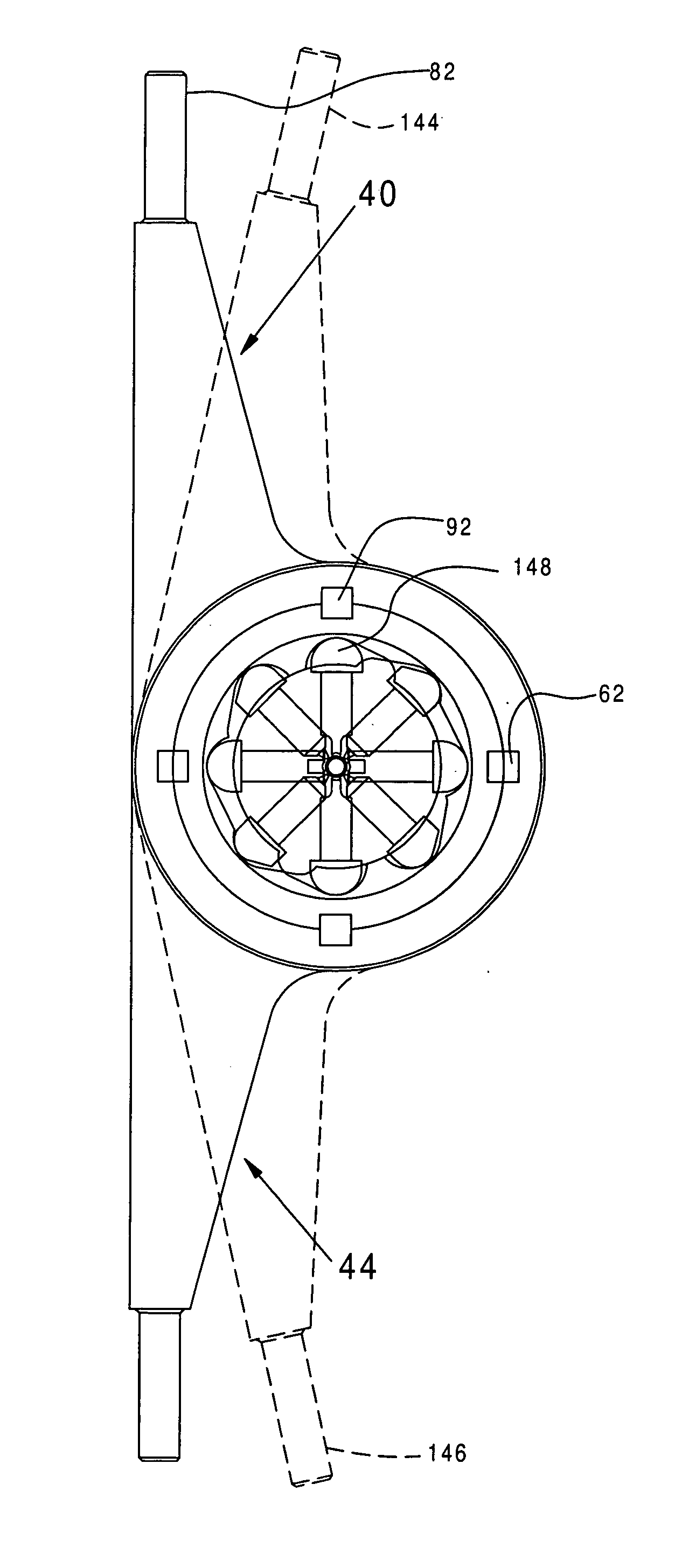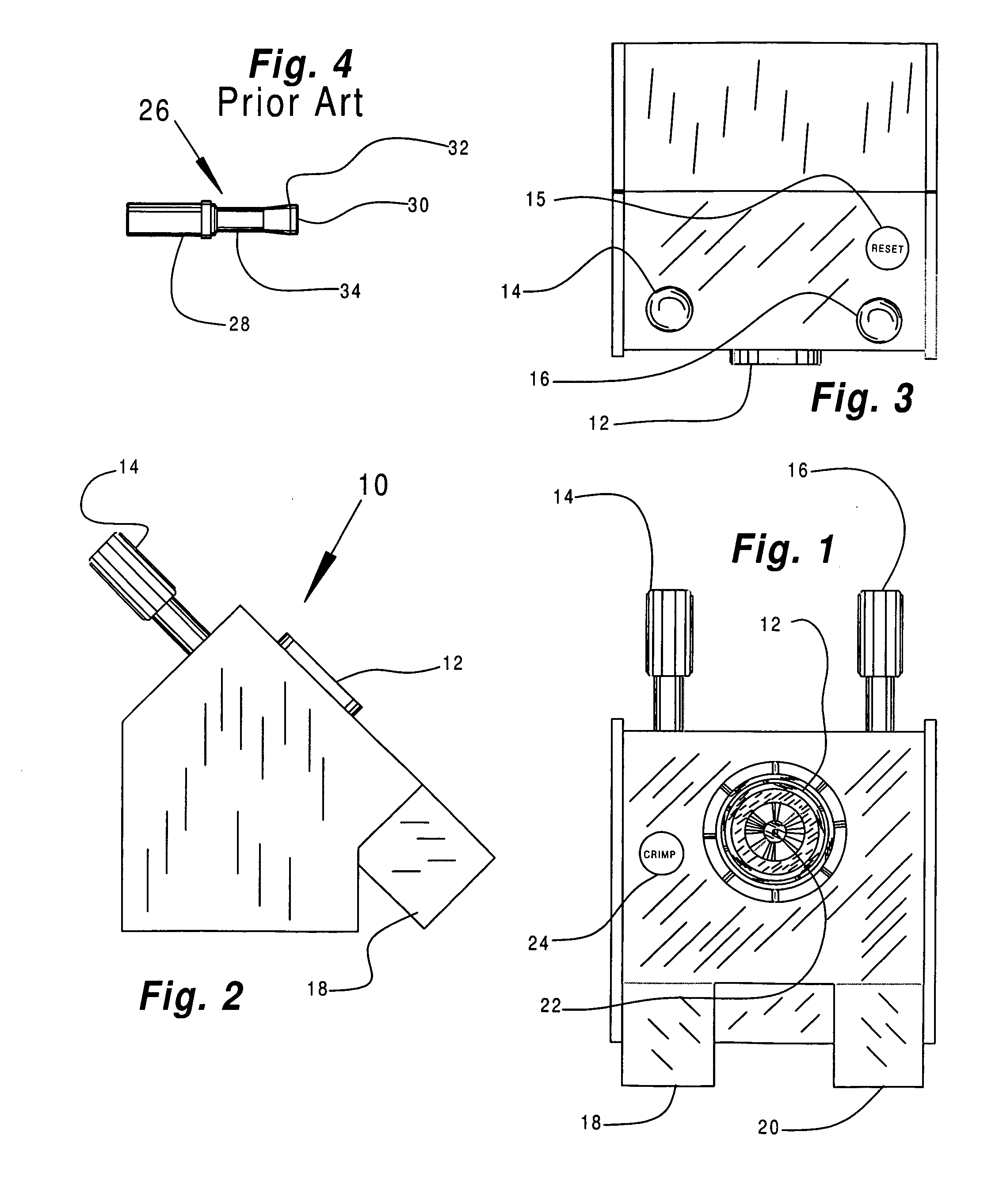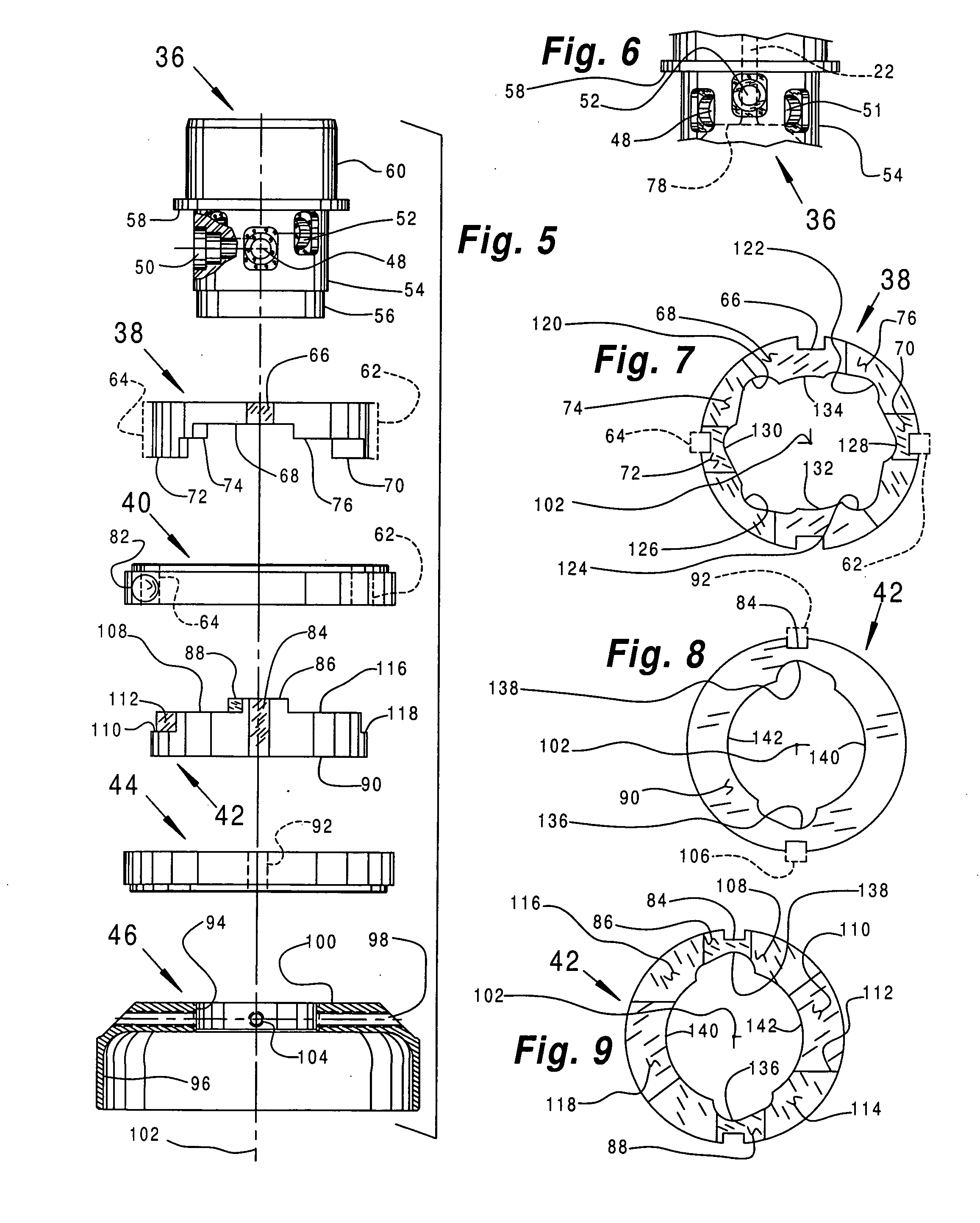Dual crimping of single and multi-strand aluminum wire with quick-change crimp head
a technology of aluminum wire and crimp head, which is applied in the direction of metal working equipment, connections, manufacturing tools, etc., can solve the problems of inability to meet the requirements of a single crimping head, etc., to prevent the performance of a second crimping action, quick and easy insertion and removal, and prevent the performance of a second
- Summary
- Abstract
- Description
- Claims
- Application Information
AI Technical Summary
Benefits of technology
Problems solved by technology
Method used
Image
Examples
Embodiment Construction
[0057] Referring now to the drawings wherein like reference numerals designate identical or corresponding parts throughout the several views. It is to be understood that the drawings are diagrammatic and schematic representations of various embodiments of the invention, and are not to be construed as limiting the invention in any way. The use of words and phrases herein with reference to specific embodiments is not intended to limit the meanings of such words and phrases to those specific embodiments. Words and phrases herein are intended to have their ordinary meanings, unless a specific definition is set forth at length herein.
[0058] For purposes of illustration, a bench mounted embodiment of the invention has been shown. It will be understood by those skilled in the art that hand held embodiments of the present invention may be used for lighter gauges, for example, smaller than approximately 18 gauge. For heavier gauges, for example, 14 gauge and heavier, it preferable to use a ...
PUM
| Property | Measurement | Unit |
|---|---|---|
| depth | aaaaa | aaaaa |
| atmospheric pressure | aaaaa | aaaaa |
| pressure | aaaaa | aaaaa |
Abstract
Description
Claims
Application Information
 Login to View More
Login to View More - R&D
- Intellectual Property
- Life Sciences
- Materials
- Tech Scout
- Unparalleled Data Quality
- Higher Quality Content
- 60% Fewer Hallucinations
Browse by: Latest US Patents, China's latest patents, Technical Efficacy Thesaurus, Application Domain, Technology Topic, Popular Technical Reports.
© 2025 PatSnap. All rights reserved.Legal|Privacy policy|Modern Slavery Act Transparency Statement|Sitemap|About US| Contact US: help@patsnap.com



